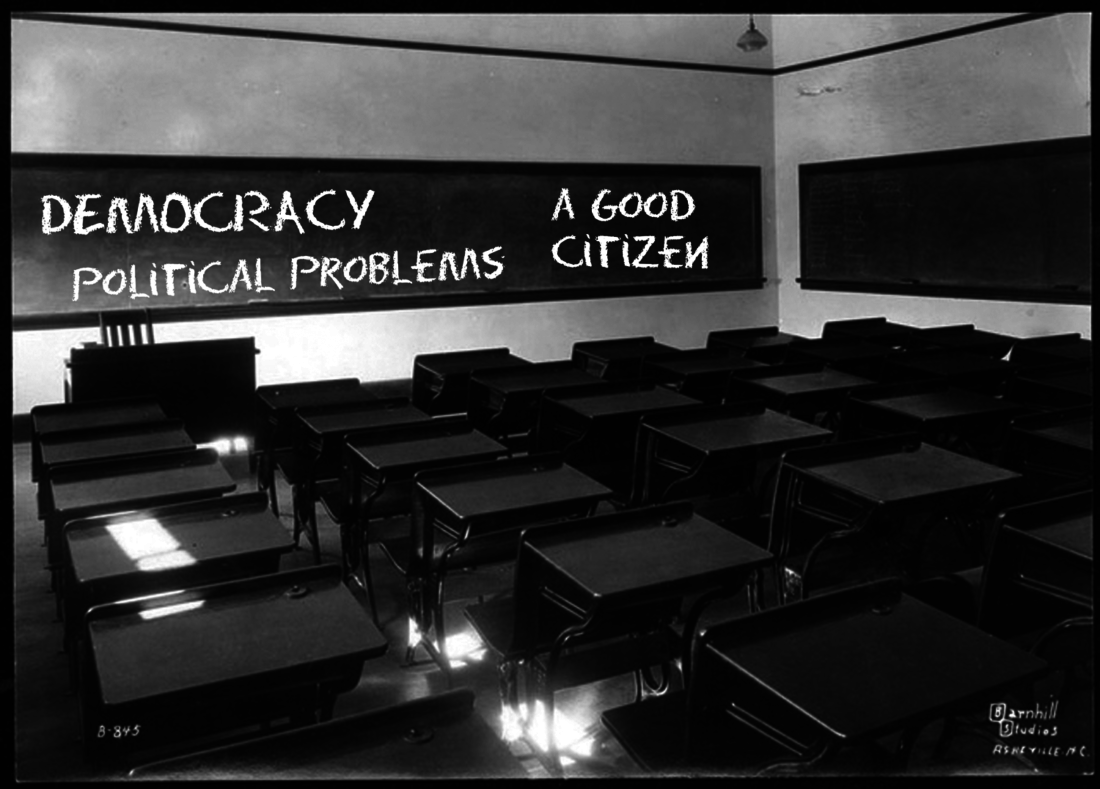Concern over the future of American democracy lined the editorial page in the Jan. 22, 1923, edition of The Asheville Citizen. The paper posited that the public, by and large, neglected its duties to be informed and engaged citizens.
“Except as impelled by the rising temperature of a political campaign, how small is the minority that gives regular and serious study to the public business!” the editorial exclaimed.
And while the pulpit, press and other agencies played vital roles in awakening civic responsibilities, the paper continued, “it is to the schools, colleges and universities that we must look for the creation of a new type of citizen, one that lays primary emphasis on intelligent service to society.”
In the same issue, the paper ran a letter by E.H. Stillwater, a professor of history and social sciences at Cullowhee Normal and Industrial School (today’s Western Carolina University). In it, the professor argued for a new approach to schooling.
“The ultimate end and aim of all education is, or should be, the making of good citizens,” Stillwater wrote. “In the past we have aimed at making a good lawyer first and then a good citizen. In the future we shall reverse the order and strive to make a good citizen and then a good lawyer.”
The impetus, Stillwater continued, was the republic itself. “In this new and rapidly moving age when so many theories and radical experiments are being tried out, both in church and state, we stand in need of a larger social intelligence,” he asserted. “Democracy itself is on trial; and if it is to stand the test we must educate the masses for democracy.”
The professor pointed to a course on citizenship he led at Cullowhee Normal. In it, his students studied “history in the making,” by reading and discussing current events as reported in the papers.
Along with his description of the course, Stillwater included an excerpt from an article written by his student Lucile Leggette, published in the September 1922 issue of North Carolina Journal of Education.
“Interesting discussions and various views expressed by members of the class, skillfully guided by professor Stillwater, resulted in a greater familiarity with present-day affairs and a better understanding of the correct attitude teachers should take in matters of vital interest to community, state, and nation,” Leggette wrote. “We hope that by next summer other schools will be able to offer just such a course to their students.”
Stillwater concluded his letter by emphasizing that the course’s popularity attested to the interest and need of the study.
The Asheville Citizen’s editorial, previously quoted above, agreed.
“Men and women of today have many calls upon their personal and civic interests,” the paper wrote. “The task of making a living is strenuous for the majority; the multiplicity of public questions is sometimes confusing; and yet the absolute failure of the American experiment in democracy can only be prevented by the intelligent and persevering interest of men and women in public issues.”
Editor’s note: Peculiarities of spelling and punctuation are preserved from the original documents.



Good starting point for local 2024 and 2026 elections. The past can often have vital lessons learned.